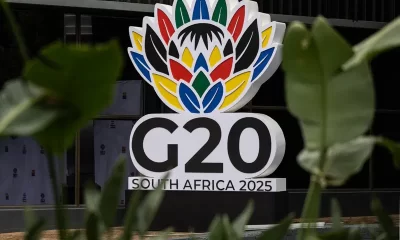National Issues
When Past Becomes A Burden -By Seun Elere
History is a powerful tool (if based on factual and evidential recollections), but when wielded by a people who have not been equipped to heal from it, it becomes dangerous. Revealing painful stories from the past to a society still mourning its wounds can only stir further division, ignite conflicts, and fuel violence. It risks fracturing communities and nations that are struggling to find peace and unity.

In a small village, a boy’s father was executed for stealing when the boy was just six months old. According to the village’s customs, anyone caught stealing would be thrown into the river, a fate that ultimately claimed the life of this child’s father. The man, caught red-handed by his best friend, was reported to the village chiefs, who carried out the execution in accordance with tradition. For the boy, growing up without his father, the story he was told was that his father had died in war.
But as time passed, the truth emerged: his father had been betrayed by his closest friend, who turned him in for stealing a few tubers of yam. What would this 30-year-old man’s reaction be upon learning that his father’s death was the result of betrayal, rather than an unfortunate accident of war?
Several years ago, I had the opportunity to visit the historical slave camps. I witnessed firsthand the harrowing tunnels where slaves awaited their fate, the brutal instruments used to brand them as property, and I learned of the inhuman practice of throwing slaves into the sea to lighten the load during troubled voyages. I stood before the “Bridge of No Return” and felt a deep, seething anger at the atrocities that had been committed against human beings simply because of their race. That anger led me to write a poem titled “I Heard”. Many black people around the world, aware of the history of slavery, share a similar anger.
Yet, even closer to home, the wounds of history remain unhealed. The scars from the 1966 coup and counter-coup continue to fester. A glance through social media platforms today is enough to reveal the lingering pain and unresolved issues of the Biafran War, a chapter of our collective past that remains largely open.
History is a powerful tool (if based on factual and evidential recollections), but when wielded by a people who have not been equipped to heal from it, it becomes dangerous. Revealing painful stories from the past to a society still mourning its wounds can only stir further division, ignite conflicts, and fuel violence. It risks fracturing communities and nations that are struggling to find peace and unity.
The recent reactions to a book that delves into such sensitive history have exposed, once again, the danger that unhealed historical trauma poses to a nation. Without proper reconciliation, history’s grip on the present is relentless, leaving scars that affect generations long after the events themselves have passed.
History is not just a record of events; it is an emotional inheritance passed down from one generation to the next. When we fail to process and heal from these histories, we inadvertently perpetuate cycles of pain, resentment, and division. It is time to recognize that healing must precede the retelling of painful histories, for only then can we truly move forward as a united people.
Seun Elere
Public Affairs Analyst &
Social Inclusion Advocate
Continue Reading








